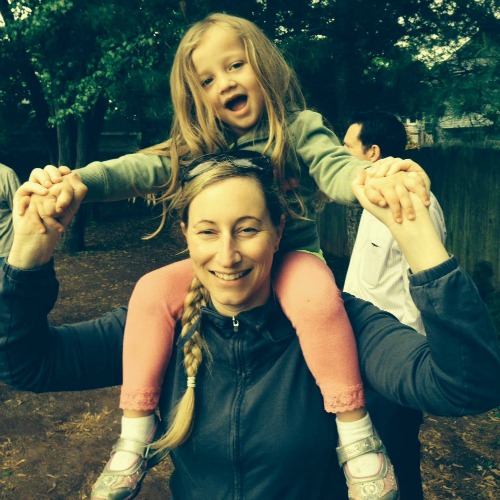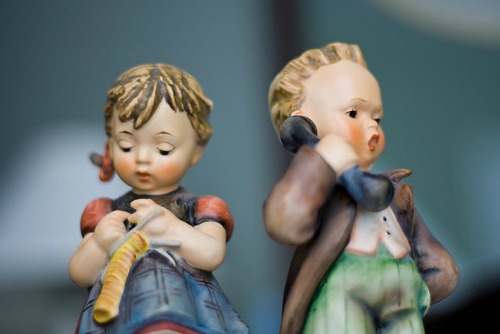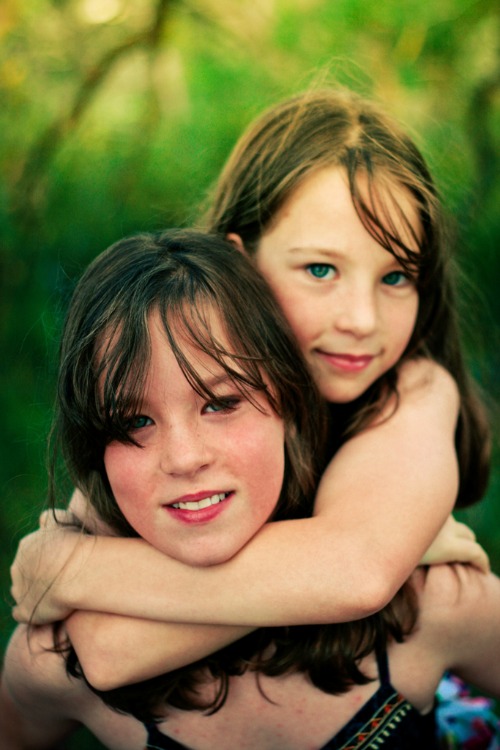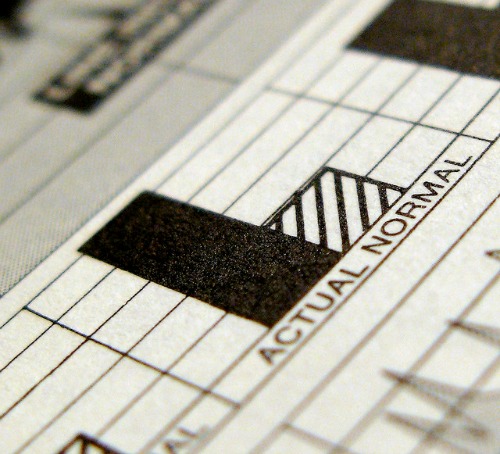
NEW JERSEY, USA: Interview with Sarah Hughes

Sarah Hughes has been helping out behind the scenes at World Moms Blog. Read her interview to learn more about our newest contributor in North America! (more…)


Sarah Hughes has been helping out behind the scenes at World Moms Blog. Read her interview to learn more about our newest contributor in North America! (more…)


Last month’s Atlantic Magazine featured a cover page story on the “Confidence Gap” between men and women. For a variety of reasons both biological and environmental, women drastically underestimate their own competence. This, the article tells us, is a big obstacle to women accomplishing the success they are due.
While it was interesting to me that womankind as a whole seems to value themselves more meanly than mankind, it was all the more interesting to know that I wasn’t alone in feeling anywhere from out of my depth to outright fraudulent in many situations. Apparently many other ladies in the room were likely feeling just the same.
But more than anything else, the article left me examining a gap within myself. The gap between where I feel my confidence ought to be and where is actually is. And where it is, quite frankly, is way….way behind. Let’s say…1994 behind. (more…)

In March, I wrote a post in honor of Gloria Steinem’s birthday, in which I mentioned that when Steinem spoke at my college graduation way back in the 1980s, my friends and I had wished for a speaker who was more “relevant.” In our innocence, we believed that Steinem had won her fight; we were graduating from a women’s college and thought that fight for gender equality had been more or less won.
More than two decades later, I wish I could say that Steinem was irrelevant and that gender inequality is something we only read about in the history books.
When I wrote that post about Steinem, I was thinking about the Common Core curriculum, which relegates women’s contributions to history to the sidelines. Now, of course, we are all confronted with the horror that’s unfolding in Nigeria, and while the plight of those schoolgirls devastates me, it has become, in my mind, another instance in a long list of the ways in which groups (comprised mostly of men) attempt to score political points by seizing control of women’s lives. As an example, think about the Tea Party conservatives in the US, who prove their conservative bona fides in the United States by voting against support for Planned Parenthood, or Head Start, or universal kindergarten, or…
What is so scary about educating a girl? In the middle ages, accusations of witchcraft were often leveled against women who had amassed too much wealth or land, or who in some way differed from those around them. We teach our children that things like the Salem witch trials happened because “people didn’t know better” or because of “mass hysteria” but sometimes I wonder how far we have progressed since those days. What happens to women who challenge the status quo–or who have the potential to challenge the status quo? Don’t they still run the risk of being punished, whether literally or figuratively?
It’s funny to me now, but when I first moved to Abu Dhabi the two most obvious indications that we’d left Manhattan behind—besides the searing heat—were the adhan and the abaya-clad women: religion and covered bodies. I found the abayas more unsettling than the call to prayer, even as I sometimes envied the women their public invisibility. The longer we live here, however, my perceptions have changed so that I no longer see hijab as an automatic symbol of oppression or subjugation or second-class citizenry.
I would imagine, however, that as women here, we’ve all had moments where we’ve felt marginalized, silenced, lesser: the day I trotted down the sidewalk to get in a waiting cab and the cab driver chastised me by saying “women should not run, madam, I will wait, and you should walk.” Or when a guard at the border crossing into Oman looked over at the passenger seat where I was sitting (in long trousers) with one foot propped on the dashboard and told me “to put my foot down, sit like a lady, more properly, sit properly.” When that happened my first impulse was to laugh: surely he couldn’t be serious? But, of course, he was serious. I put both feet on the floor and looked at the map so that I didn’t toss out a few well-chosen swear words. (A general rule regardless of where you are: don’t swear at anyone, male or female, who is wearing a uniform at a border crossing.)
So yes, in that instance, I was silenced as I suppose I was by the cab driver too, who took it upon himself to offer some unsolicited advice. And yes, there is now a slight internal pause before I leave the house as I run through a kind of inner checklist about what I’m wearing: if short sleeves, a long skirt or pants, or vice versa (long sleeves, shorter skirt or shorts); do I have a shawl (equally for frigid air conditioning and bare shoulders); if I’m going to the beach, I make sure that my beach cover-up is more than a ratty t-shirt. There are days where I know I’ve failed the checklist and am too busy or late to care, but overall, I dress more modestly now than I used to and probably that’s not a bad idea: no one needs to see a fifty-year-old woman slopping down the street in cut-off shorts and a tank top.
Am I being repressed, or respectful? Does my feminism mean that I yell at the cabbie, keep my foot defiantly on the dashboard, saunter down the street in a halter top and tight jeans? Or, alternatively, does feminist politics remind us that silencing and the policing of women’s bodies happens—sadly—in almost every culture in the world, including the US? Without making light of the specifics of being female in this region, I’ve come to think of the issues facing women in this part of the world as being differences in degree, not kind, from the problems facing women in other parts of the world.
This is an original post to World Moms Blog by Deborah Quinn in the United Arab Emirates of “Mannahattamamma.”

 My extended family on my dad’s side is huge. My dad had a bunch of sisters and a brother, and they’ve all gotten married and had babies and all of their babies are getting married and having babies. My oldest cousin is in her 40s; the youngest is in her early 20s. The oldest of the cousin’s children is 17 and the youngest is…just a couple weeks old.
My extended family on my dad’s side is huge. My dad had a bunch of sisters and a brother, and they’ve all gotten married and had babies and all of their babies are getting married and having babies. My oldest cousin is in her 40s; the youngest is in her early 20s. The oldest of the cousin’s children is 17 and the youngest is…just a couple weeks old.
Growing up, one set of cousins lived particularly close to where we lived. J is almost exactly 10 years older than me, and his sister V is 8 years older. They both used to babysit my siblings and I, but I mostly just remember V. She would take us on the bus when we left the house. She was a cheerleader, and when I got a little older she was my cheer coach.
In all honesty, she was basically my big sister. I looked up to her in a way I wished my little sister would look up to me. I still do.
Recently I had a mini breakdown at a family event and I ended up closing myself in a bedroom for a while to have a good cry. I just needed to get it out to be done with it and move on. It was the only way I could deal with all of the emotions I had been feeling.
V came to me to talk. It was a little bit of a relief when she admitted to me that she doesn’t have everything together. She made me realize that it’s all right for me to not have it all together at 30. People have been telling me this, but V saying it–for some reason–really made it click. I have looked up to her for so much of my life, and what I could see always looked like she really knew what she was doing. For her to admit even the smallest imperfection meant a lot to me.
Not because I feel better that she’s imperfect, but because she made it okay for me to be imperfect. She made it okay for me, and I’m here to tell you that it’s okay for you. It’s okay if you don’t have it all together. Nobody does. We’re all just doing the best we can with what we’ve got. And what more could we ask for?
Do you ever feel like you don’t quite have it “all together”? How have you dealt with the emotions you have felt?
This is an original post to World Moms Blog by Roxanne of Nevada, USA. You can find Roxanne at her editorial website, RoxannePiskel.com, and her personal blog, Unintentionally Brilliant.
Photo credit to Lina Hayes. This photo has a creative commons attribute license.

 A few months ago, my older son George turned ten. I felt a sense of wonderment at the fact that I had actually succeeded in keeping a human being alive for an entire decade. To put this into perspective, let me just say that as a kid I ripped the limbs off my dolls. I was not exactly a poster child for parenting potential. I know more than a few people who might legitimately be surprised that I’ve been more-or-less successful as a mother.
A few months ago, my older son George turned ten. I felt a sense of wonderment at the fact that I had actually succeeded in keeping a human being alive for an entire decade. To put this into perspective, let me just say that as a kid I ripped the limbs off my dolls. I was not exactly a poster child for parenting potential. I know more than a few people who might legitimately be surprised that I’ve been more-or-less successful as a mother.
As George blew out his birthday candles, though, I also felt a jolt of terror. These ten years have gone so quickly, and in just eight more short years, my firstborn child will be nominally (although probably not academically) ready to graduate high school.
But wait! Before that even happens, before we have to make scary decisions about adulthood and post-school life, we have to navigate the stormy teenage years – a period that I don’t think any parent looks forward to, never mind the parent of a child with autism. (more…)


Growing up in Illinois, when I was in elementary school, it was commonplace for our school to have several emergency drills in case there was a tornado. We knew to hide under our desks and cover our heads with our hands and wait until the drill was over. The thought behind the drill was that we would be ready if a disaster ever struck. We followed up with fire drills as well. We prepared for what we knew could happen but hoped would never happen to us… (more…)